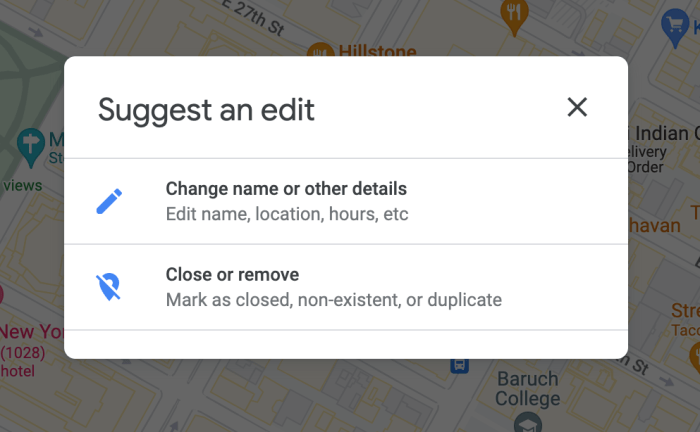Google Maps complaint form fraudulent info: Navigating the murky waters of fake business listings, bogus reviews, and misleading information on Google Maps can be a real headache. This isn’t just about a few bad apples; it’s about the erosion of trust in a platform we rely on daily for everything from finding the best ramen spot to choosing a reliable plumber. We’re diving deep into how to spot, report, and ultimately combat this digital deception, empowering you to reclaim the integrity of your online map experience.
From understanding the various types of fraudulent information—think fake addresses, stolen photos, and suspiciously glowing reviews—to mastering the art of filing a compelling complaint, we’ll equip you with the knowledge and strategies to fight back. We’ll also explore the consequences of fraudulent information for businesses and users alike, and offer practical tips for prevention and mitigation. Get ready to become a digital detective and help keep Google Maps a trustworthy resource for everyone.
Impact of Fraudulent Information on Google Maps: Google Maps Complaint Form Fraudulent Info
Fake reviews, inaccurate business hours, and misleading location data – these aren’t just minor inconveniences on Google Maps; they’re significant problems with far-reaching consequences. The seemingly simple act of submitting false information can trigger a ripple effect impacting businesses, users, and the platform’s overall trustworthiness.
Businesses that engage in posting fraudulent information on Google Maps risk severe repercussions. Google actively combats this, and businesses found guilty of manipulating their listings face penalties ranging from warnings and temporary suspensions to permanent removal from the platform. This can be devastating, effectively silencing their online presence and crippling their ability to attract customers. The loss of visibility translates directly to lost revenue and potential damage to their reputation, even beyond Google Maps itself. Consider a small restaurant that falsely advertises itself as open 24/7 – customers arriving late at night only to find it closed will likely leave negative reviews elsewhere, amplifying the damage.
Consequences for Businesses Posting Fraudulent Information
The potential for damage extends beyond just penalties from Google. Negative reviews from frustrated customers, resulting from inaccurate information, can significantly harm a business’s online reputation. Furthermore, the trust deficit created by fraudulent information can be difficult, if not impossible, to repair. The long-term impact on customer loyalty and future business could be substantial. A consistent pattern of deceptive practices might even lead to legal action from consumers or regulatory bodies.
Impact on User Experience and Decisions
Fraudulent information directly impacts user experience and decision-making. Users rely on Google Maps for accurate information, and inaccurate data can lead to wasted time, frustration, and even safety risks.
| Impact on Users | Examples of Impact |
|---|---|
| Wasted Time and Resources | Driving to a business that’s closed or located elsewhere; searching for parking that doesn’t exist; spending time at a location that doesn’t match the description. |
| Financial Losses | Paying for a service that isn’t provided as advertised; incurring unexpected expenses due to inaccurate information about pricing or availability. |
| Safety Risks | Navigating to a dangerous location due to inaccurate location data; relying on misleading information about safety precautions. |
| Frustration and Dissatisfaction | Experiencing a negative experience due to inaccurate information, leading to distrust of Google Maps and a reluctance to use it in the future. |
Effect on Google Maps’ Credibility and Reputation, Google maps complaint form fraudulent info
The prevalence of fraudulent information erodes the credibility and reputation of Google Maps. As the platform becomes less reliable, users are more likely to question the accuracy of information presented, potentially leading them to seek alternative navigation or review services. This undermines Google’s position as a leading provider of location-based services and could affect user engagement and trust in other Google products. The long-term consequence could be a decline in user adoption and a shift in market share towards competitors who maintain higher standards of accuracy and integrity.
So, the next time you stumble upon a suspiciously perfect five-star rating or a business address that leads to a vacant lot, you’ll be armed and ready. Reporting fraudulent information on Google Maps isn’t just about correcting inaccuracies; it’s about contributing to a more reliable and trustworthy online world. By understanding the process, the types of evidence needed, and the potential impact of your actions, you can play a vital role in maintaining the integrity of this essential platform. Let’s keep Google Maps honest, one report at a time.
 Blockchain Essentials Berita Teknologi Terbaru
Blockchain Essentials Berita Teknologi Terbaru
